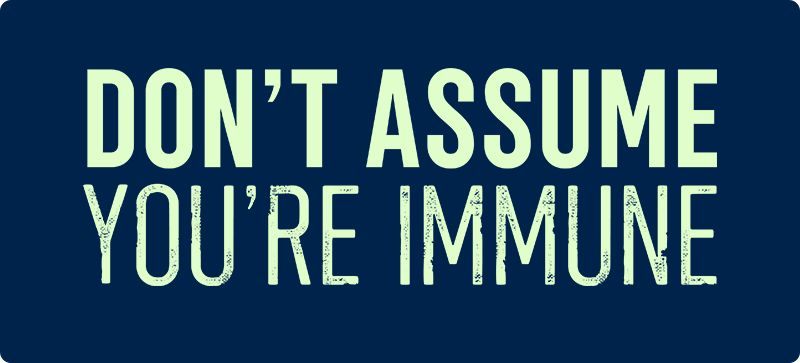

Shingles (herpes zoster) is a painful, blistering rash. It is a reactivation of the virus that causes chickenpox.
Almost all adults are at risk of developing shingles, as more than 95 per cent of Australians over the age of 30 have been infected with chickenpox (the varicella-zoster virus).
It is estimated that 1 in 3 people will get shingles in their lifetime. As a person gets older the risk of getting shingles and neurological complications increases.
You can only get shingles after you have already had chickenpox. It is not possible to catch shingles from someone experiencing a shingles outbreak.
The fluid from the blisters from someone with shingles is infectious. People with shingles will be infectious until all blisters are crusted over. If you touch the blisters, for example through hugging, you can get chickenpox if you have not had it before.
After you have had chickenpox, the varicella zoster virus stays in your nerve cells. The virus can be inactive for many years. If the virus becomes active again, it typically presents as shingles. It is thought that in many people, shingles may be triggered by stressful events.
Shingles can occur in anyone who has had chickenpox, as the virus remains dormant in the body and can reactivate later in life. Shingles mainly affects older adults and individuals with weakened immune systems.
The initial symptoms of shingles can include tender and painful skin, sensitivity to light, headache and tiredness.
The shingles rash consists of painful red bumps which turn into fluid-filled blisters. These blisters will burst, and then heal into a crusty surface over 2 weeks.
The pain caused by shingles can persist for weeks or months, this is called postherpetic neuralgia. If you have a shingles rash and it becomes infected, this could lead to scarring. Shingles occurring in the eye area could result in temporary or permanent vision loss.
Being vaccinated with the shingles vaccine will help protect you from getting shingles. Vaccination is recommended for older adults.
Vaccination is free for eligible groups, see below for details.
For detailed information, including timings, refer to the WA Immunisation Schedule or speak to a health professional.
The shingles vaccine (Shingrix®) can significantly reduce the risk of developing shingles. It’s best to consult with your GP or healthcare provider for personalised information.
2 doses of the shingles vaccine are recommended and free for eligible people. It is important to receive both doses for the best protection.
For most people, the 2 doses of the Shingrix® vaccine are given 2 to 6 months apart. For people with weakened immune systems, the two doses are given 1 to 2 months apart.
The shingles vaccine (Shingrix®) is free for eligible people under the National Immunisation Program (external site).
A 2-dose course of Shingrix® is available for:
While the Shingrix® vaccine comes at no cost, your GP or immunisation provider may charge a consultation fee for the appointment.
For further advice and to confirm your eligibility, please consult your GP or immunisation provider.

Find more information about shingles including where to get vaccinated in WA below.
Gerry was enjoying a game of golf when he began to feel unwell.
His friends noticed part of his face had turned red which he put down to heatstroke.

“It was strange as it was only on one side of my face, but it was causing pain like I have never experienced before,” Gerry said.
“I also came down with a bad headache which wouldn’t budge.”
The pain became even more severe, so he and wife Maddy headed to Sir Charles Gairdner Hospital (SCGH) emergency department.
Much to his surprise, Gerry was diagnosed with shingles.
A rash on his face resembled small blisters which extended to his right eye.
“I was told that shingles on the face, especially the eye, can lead to serious complications as it can lead to vision problems,” he said.
“Potentially you could lose your sight as shingles damages the nerve-endings.”
Gerry was prescribed with pain killers and topical treatments and sent home to recover.
He was not able to work for 2 weeks until his blisters had healed as he was considered infectious.
“I have no idea what brought it on in the first place, but it was extremely uncomfortable, and I was bed-ridden for days,” he said.
Gerry was regularly monitored by an ophthalmologist too as the vision in his affected eye became blurred due to the shingles virus.
“It was the most severe pain I have ever experienced in my life.
“The vaccination wasn’t around when I got shingles 10 years ago as it didn’t become available until 2016.
“Now that it is, I would encourage anyone who is eligible to have it.
“Like all vaccines, it doesn’t necessarily guarantee you can never get it, but the illness will be less severe which means there’s less complications down the track.
Gerry continues to experience health-related issues associated with shingles even though it was more than a decade ago.
“The damage caused to the nerve-endings means I have to be extra cautious when I go out in the sun as my face can get burnt very easily.
“In terms of illness, I was always one of those people who thought it could never happen to me, but I was mistaken,” Gerry said.
“Realistically it could happen to anyone but at least the vaccination gives them a bit of a barrier.
“As you get older, your body is not as efficient at fighting bugs which is why my wife and I make sure we’re protected by the vaccinations available to us.
“I honestly wouldn’t wish shingles on my worst enemy,” he said.